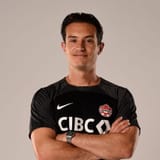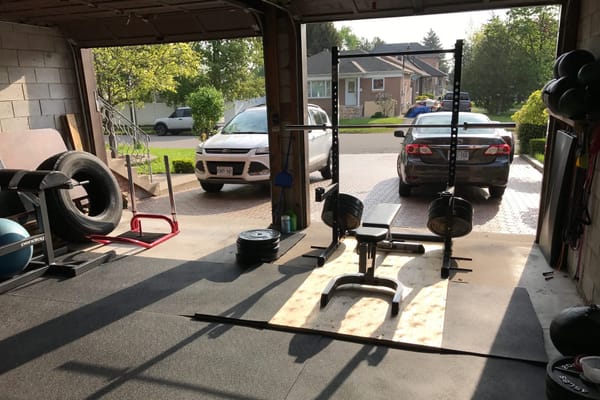If you want to write

I’ve been meaning to do this for a long time…
Sharing my journey always felt like a great way to connect and reflect on my process. For some reason (which I know what it is, but will be purposely vague about it here), I retreated and began to feel that nothing I would write about could be useful or interesting to others.
There was also the fear of being judged. Which is normal when you work in a competitive industry where people hold strong opinions and attach your value to the outcome of others (i.e. athlete’s performing).
Add being trained to write in a scientific manner and you can quickly convince yourself that everything you write must be exact and have utility.
I won’t provide any further justifications for putting off writing, there is no use. I am here now, and having addressed some obstacles, you now have an awareness about my journey to this point.
…
The coaching better blog is a creative outlet for me. Many people will tell you coaching is part scientific process, and part art. I don’t believe these parts are always equal, and they should never get too far out of balance.
While pursuing a master’s degree and entering the world of high-performance sport, I leaned heavily into the scientific part of the coaching equation. To illustrate this point, I switched to a thesis from a course-based master’s degree which doubled the time investment, allowing me to engage in the scientific process. On the coaching front, I looked for evidence to justify my training programs and methods at every step. I felt I needed to justify my value as a coach with data and science.
I’m now one full year removed from completing my thesis and have spent the last few years fully immersed in high-performance sport. Throughout this time, I’ve grown a new appreciation for the balance between art and science. Working with top coaches and athletes can give you the type of insight you will never find in a lab or journal publication. There are deep, meaningful insights that can only come from being in the trenches.
Balancing the art and science of coaching is what coaching better means to me. This thesis will be explored in parallel with my journey as a coach throughout this blog.
While I intend on continuing with academic writing, educating and presenting, I feel it’s equally important I develop and flex my creative muscle (I had to) as well. My hypothesis (I can’t get away from my scientific inclination as you see!) is that this will make me a better coach, educator, and thinker.
After finally getting over myself, I’ve decided to write this blog for two reasons:
1. To reflect and be more grateful about the place I am in my career.
Like many of you, I’ve questioned my career path and whether I’m doing the right thing. This became a recurring theme during the difficult times, to the point I wasn’t sure if I should continue being a performance coach. I can confidently say now, what a shame that would have been!
The journey I’m on has been a wonderfully exciting ride at the best of times - and while it’s not been that all the way through, that’s not how life works. You know this and I know this. Let it be your 500th reminder.
After coaching for 10 years, I think I have some meaningful reflections (for myself, though you may relate) and know I will be a better person and coach for it. I will surely be a happier one as there is a lot to be proud of.
2. Work through thoughts, ideas, and express my creativity.
It feels weird to say this but for a long time I’ve wanted to write.
It probably began when I started reading articles of other notable coaches, first in Men’s Health magazines, then T-Nation articles online, and eventually, scientific publications like the Strength & Conditioning Journal or Journal of Sport Sciences. I was so impressed by their knowledge and thrilled to be learning from accomplished people in their respective fields.
As a coach, I used to believe that writing was reserved for a certain type of person. I now understand that is categorically false. No matter what narrative I create during my next bout of imposter syndrome (which is surely just around the corner), I will remind myself that everyone has something of interest to say and can write. I learned this lesson from Brenda Ueland’s wonderful book If You Want to Write. The most important thing to writing well, Ueland would say, is to be authentic. This truth struck a familiar chord in me.
I convinced myself I had to read a book about writing to feel prepared to do this. And by chance, I found Ueland’s book on the bottom shelf of a delightfully unique bookstore in LA. With two copies on the shelf and being in print for nearly 90 years (1938), I read the title again and thought to myself, “surely this will get me there!”
And here I am. The book transformed my thought process about writing, yet in a way, felt like it uncovered a deep understanding that was already there.
To start, I will be writing about something I know very well, myself, and something I am very passionate about, coaching.
…
Something inside me tells me this path can pull out the best in me. It’s hard to explain really, but I think this quote from Van Gogh nails it:
“Love many things, for therein lies the true strength, and whosoever loves much performs much, and can accomplish much, and what is done in love is done well.”
In one line, Van Gogh has accomplished what’s taken me three pages; his words capture and summarize the spirit of the coaching better blog.
JV



